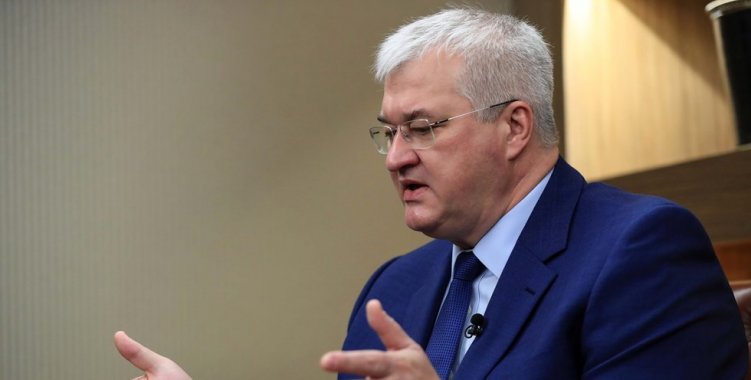The Ukrainian Foreign Minister, Andrii Sybiha, included Angola in his tour of countries in Africa and the Middle East, during which he intends to promote the peace formula and consolidate humanitarian and energy support for Ukraine.
This is the first time that a head of Ukrainian diplomacy has visited Angola, an initiative that for Andrii Sybiha has particular relevance given the conflict with Russia.
"We need more solidarity, we need more support, we need more contributions from other countries to [reinforce] our ability to defend ourselves," he said, in an interview with Lusa, adding that this is also a "clear sign" that Ukraine is ready to develop bilateral relations with Angola in all dimensions.
The two countries have established diplomatic relations since 1994, but have not fully developed their potential, which is one of the objectives of this visit, taking into account "the very promising possibilities" of bilateral relations, he said.
Agriculture, education and defense cooperation are some of the areas of interest for cooperation between the two countries, according to Andrii Sybiha, ensuring that the aim is to support Angola to become more self-sufficient.
"Ukraine is famous for its agricultural potential, we are leaders in this sector worldwide, we are one of the guarantors of food security, we have knowledge, we have technologies, we have experience, and we are ready to share it with our friends", he told Lusa.
Andrii Sybiha recalled the "historically close" relationship with Angola due to the cooperation of the former Soviet Union [a bloc in which Ukraine was integrated] with Angola, with several senior Angolan officials having graduated from Ukrainian universities, such as his counterpart Téte António, with whom he met on Thursday.
"I had the opportunity to brief my counterparts on the latest developments in Ukraine and the situation on the border, we talked about Zelensky's peace formula and how to make it possible, a fair, comprehensive and long-term peace. We don't want an absence of war, we want a fair peace for Ukraine", he explained.
Sybiha, who was also received by President João Lourenço, highlighted that Angola was invited to participate in the next peace summit promoted by Kiev [Angola did not participate in the first], highlighting that Ukraine is prepared to invite Russian officials.
The head of Ukrainian diplomacy spoke with João Lourenço about Angola's contribution to the Luanda Process (which aims to ensure peace between the Democratic Republic of Congo and Rwanda) about the Lobito Corridor and evaluating how Ukraine can also make its contribution to this infrastructure strategic railway that crosses Angola, connecting the Port of Lobito to the border with the Democratic Republic of Congo, for more than 1300 kilometers.
Ukrainian contributions can translate into agricultural technologies, but Ukraine is also interested in using the Corridor to transport Ukrainian agricultural products through Angola, to countries with infrastructure connections, and vice versa.
"It has great potential and we are ready to contribute, we are ready to be useful and contribute to the self-sufficiency of African countries with our knowledge and experience," he said.
The official emphasized that Ukraine is a leader in unmanned equipment and has a lot to propose to its partners, in the field of military cooperation, but also with civil technologies such as the use of drones in agriculture.
In addition to diplomatic support and cooperation "with mutual benefits" in these areas, Ukraine also looks at oil, as well as student exchanges with interest, assuming that "Angola's geopolitical location is very promising" in terms of projects for the future.
Attesting to the importance of Angola, Ukraine should soon appoint an ambassador to Luanda and the minister invited the Angolan Government to also consider opening an embassy in Kiev.
Andrii Sybiha said the country is primarily interested in achieving only a comprehensive peace, seeking support from its partners in the face of "Russia's aggression" that has caused "several crises in the world", from food shortages, to energy and security.







